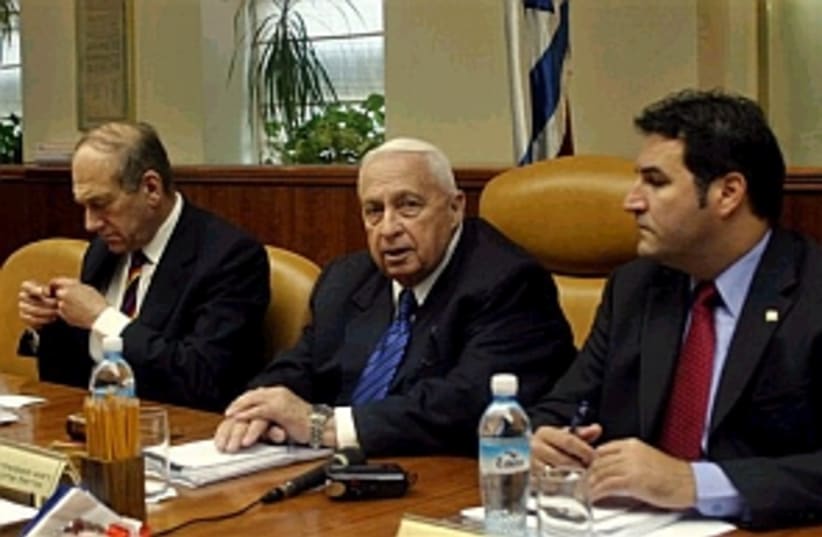| More about: | Benjamin Netanyahu, Ehud Olmert, Shimon Peres, Shulamit Aloni |
Fewer ministers
There's no reason for the taxpayer to fund the cost of a minister-without-portfolio.


| More about: | Benjamin Netanyahu, Ehud Olmert, Shimon Peres, Shulamit Aloni |